This article was co-authored by Laura Marusinec, MD and by wikiHow staff writer, Jennifer Mueller, JD. Dr. Marusinec is a board certified Pediatrician at the Children's Hospital of Wisconsin, where she is on the Clinical Practice Council. She received her M.D. from the Medical College of Wisconsin School of Medicine in 1995 and completed her residency at the Medical College of Wisconsin in Pediatrics in 1998. She is a member of the American Medical Writers Association and the Society for Pediatric Urgent Care.
There are 10 references cited in this article, which can be found at the bottom of the page.
wikiHow marks an article as reader-approved once it receives enough positive feedback. This article received 64 testimonials and 87% of readers who voted found it helpful, earning it our reader-approved status.
This article has been viewed 684,240 times.
Wondering when you can expect your first period? It's normal to be nervous about it, but don't worry—you've got this! Most people get their first period sometime between the ages of 12 and 14.[1] We're here to help you learn the signs you can look out for that will tell you that your first period is just around the corner.
Things You Should Know
- Look for your first period to come about 2-3 years after you start puberty.
- Talk to the parent who gave birth to you about when they started their period. It's more likely you'll start yours around the same time.
- Expect your period in 2-3 weeks if you have vaginal discharge that looks and feels like egg whites.
- If you feel emotional and irritable or like you're starting to get sick, it's possible that your first period is just a few days away.
Steps
References
- ↑ https://www.girlshealth.gov/body/period/index.html
- ↑ https://www.glowm.com/section-view/heading/Physiology%20of%20Puberty/item/285#
- ↑ https://www.girlshealth.gov/body/period/index.html
- ↑ https://www.glowm.com/section-view/heading/Physiology%20of%20Puberty/item/285#
- ↑ https://www.nhs.uk/conditions/periods/starting-periods/
- ↑ https://my.clevelandclinic.org/health/body/21957-cervical-mucus
- ↑ https://www.glowm.com/section-view/heading/Physiology%20of%20Puberty/item/285#
- ↑ https://www.plannedparenthood.org/learn/teens/puberty/whats-periods
- ↑ https://www.yourperiod.ca/normal-periods/your-first-period/
- ↑ https://www.plannedparenthood.org/learn/teens/puberty/whats-periods
- ↑ https://www.hopkinsallchildrens.org/Services/Pediatric-and-Adolescent-Medicine/Adolescent-and-Young-Adult-Specialty-Clinic/Puberty/Puberty-For-Girls
- ↑ https://www.plannedparenthood.org/learn/teens/puberty/whats-periods
- ↑ https://www.hopkinsallchildrens.org/Services/Pediatric-and-Adolescent-Medicine/Adolescent-and-Young-Adult-Specialty-Clinic/Puberty/Puberty-For-Girls
- ↑ https://www.plannedparenthood.org/learn/teens/puberty/whats-periods
- ↑ https://www.plannedparenthood.org/learn/teens/puberty/whats-periods
- ↑ https://www.healthychildren.org/English/ages-stages/gradeschool/puberty/Pages/Physical-Development-Girls-What-to-Expect.aspx
- ↑ https://onlinelibrary.wiley.com/doi/full/10.1111/soin.12355
- ↑ https://www.chla.org/blog/rn-remedies/discussing-menstruation-your-daughter-whats-period
About This Article
There are many signs you can look out for to know that your first period is coming. For example, when you notice pubic hair starting to grow between your legs, you’ll probably get your first period within a couple of years. Look out for small amounts of white discharge in your panties, which often means your first period will come within a few months. If you notice a sudden increase in acne, this might mean that you’ll get your period in a few days. You may also experience stomach cramps or feeling bloated right before menstruation. Another thing to keep an eye out for is intense mood swings, which are caused by the hormones that are produced during your period. For more tips from our Medical co-author, including how to recognize that your period is coming from changes in your breasts, read on!
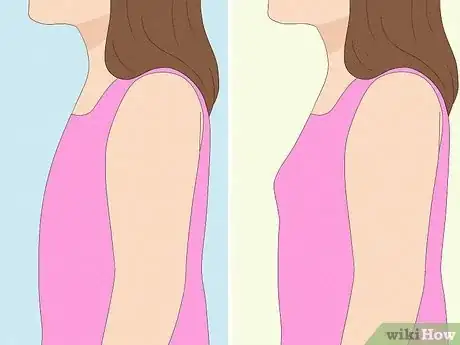
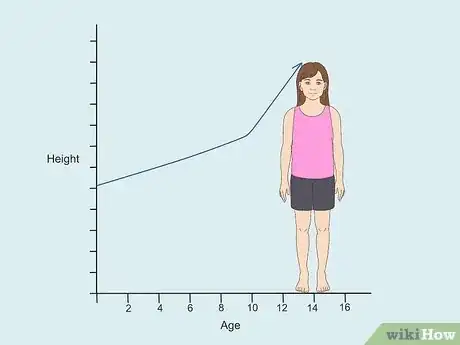
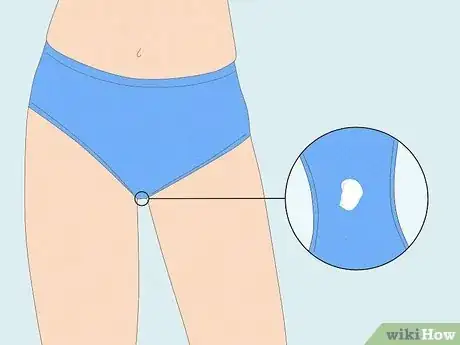
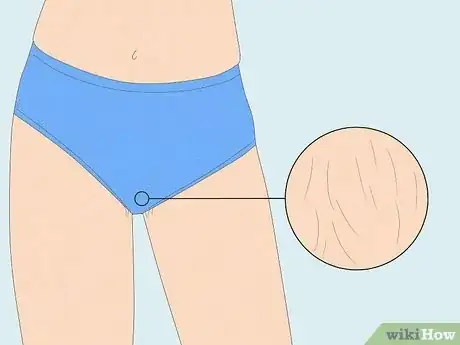
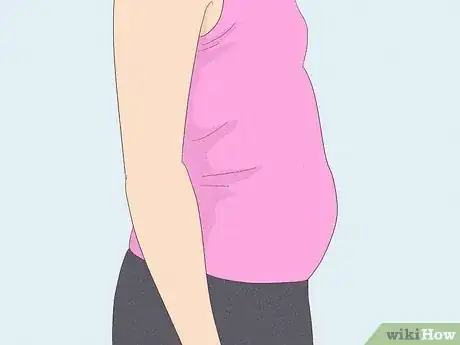
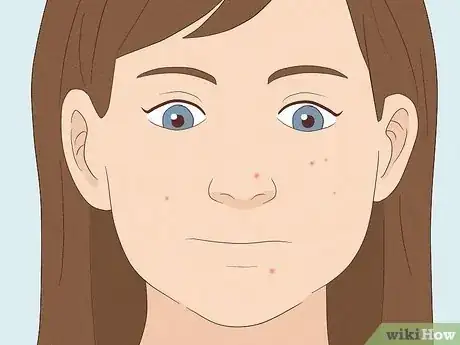
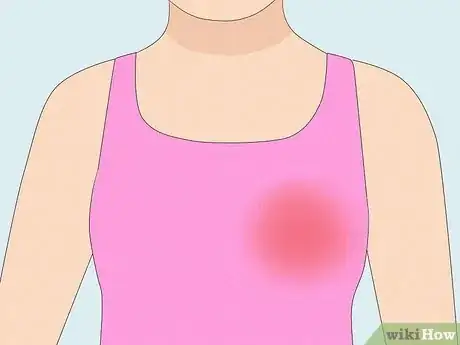
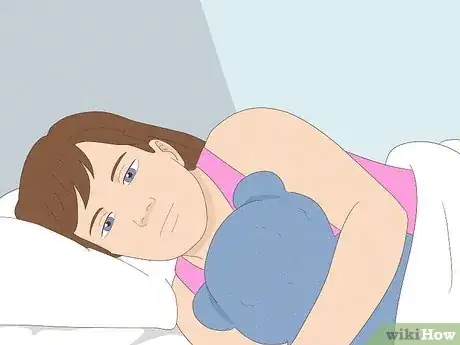
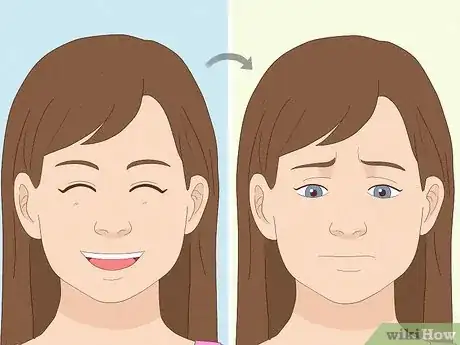
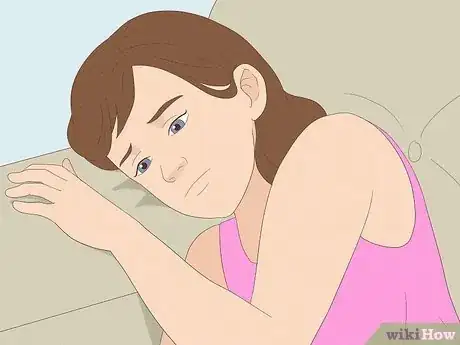
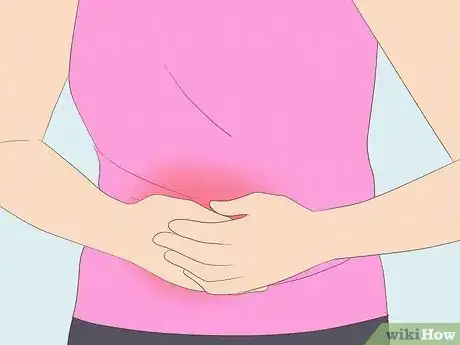
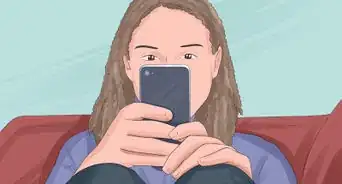

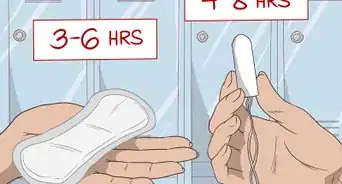


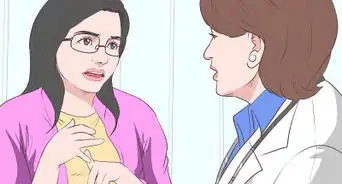
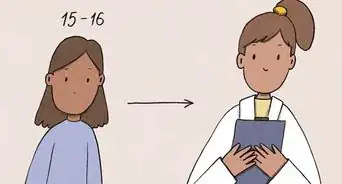

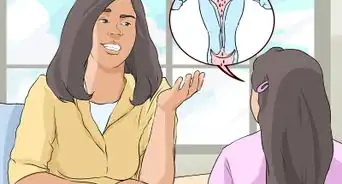
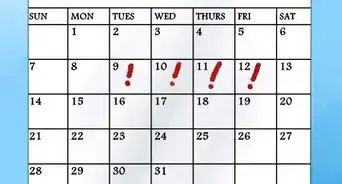
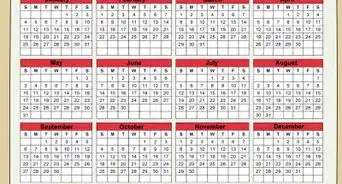
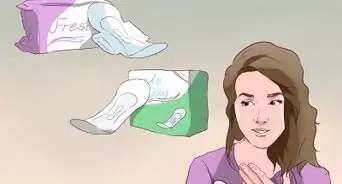

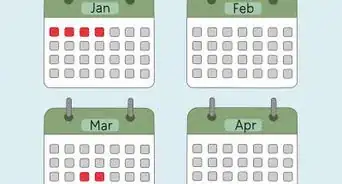

















































Medical Disclaimer
The content of this article is not intended to be a substitute for professional medical advice, examination, diagnosis, or treatment. You should always contact your doctor or other qualified healthcare professional before starting, changing, or stopping any kind of health treatment.
Read More...